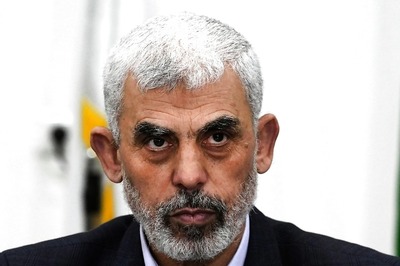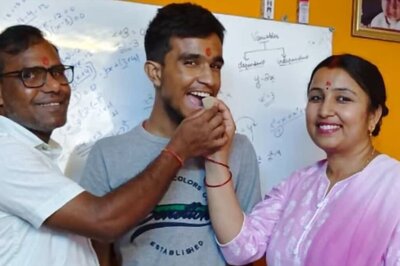
views
By Mitch Phillips CAPE TOWN (Reuters) - Not many teams have put on eye-catching shows during the early stages of the World Cup but one aspect of the tournament attracting widespread praise is the performance of the match officials. The early stages of many previous tournaments have been marred by governing body FIFA deciding to clamp down on one offence or another, all too often resulting in a rash of unfair yellow cards and a virtual ban on tackling. This year, however, the interference has been limited and the officials in their high visibility shirts have responded with sympathetic and, in some cases, outstanding, displays. "I've congratulated the referees on their good performances," said Spanish soccer federation president Angel Maria Villa, who is president of FIFA's referees' committee. "The three officials have been marvellous in all the matches. We are happy with the way the World Cup is going as far as my responsibilities in this area go." The tone was set on the opening day when Uzbekistan's Ravshan Irmatov kept a cool head in a match boiling with emotion and allowed the players of South Africa and Mexico to blow off some early steam without rushing to his cards. In the France v Uruguay match Japanese ref Yuichi Nishimura refused to be fooled by some early theatrics, letting robust but fair tackles go and using the advantage rule at every opportunity, also laying a marker for later games. Of the four red cards shown so far, only that for Australia's Tim Cahill was widely considered unfair while Argentine ref Hector Baldassi did really well to spot the blink-of-an-eye handball by Serbia's Zdravko Kuzmanovic that gave Ghana their match-winning penalty. FIFA spokesman Nicolas Maingot, while unable to comment on the technical issues of refereeing which will be reviewed by organisers after the first round, said the performances in South Africa were the return on long preparation. "In general FIFA has invested a lot of effort into refereeing," he said. "The referees here have prepared for many years, officiating together at various other FIFA competitions. They work in trios coming from the same country, or the same region and speaking the same language, and FIFA has been very active in trying to improve the refereeing situation." The modern interpretation of the offside law makes the assistants' job a real challenge but by and large they have been right with their decisions, often in the face of vociferous and usually specious appeals from defenders and their benches. FIFA also deserves praise for keeping faith with the policy of ensuring officials from some of football's smaller nations are involved. Referees from Guatemala, Japan, Uzbekistan, New Zealand, South Africa, Uruguay, Hungary and even the Seychelles are on duty in the first round. Dutch former ref Mario van der Ende, who officiated at the 1994 and 1998 World Cups, told Reuters he was "very satisfied" with the performances so far. "The overall standard has been good and I thought in particular that (German) Wolfgang Stark gave a great example of how to referee a game at this stage when he did Argentina v Nigeria," he said. "But these games are not so difficult as players are playing it safe," he added. "The real test comes when teams know they will go home if they lose." (Editing by Michael Holden)


















Comments
0 comment